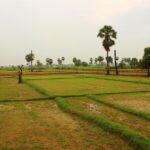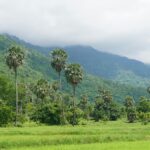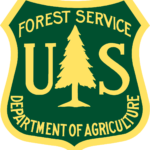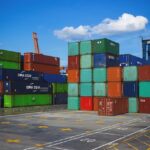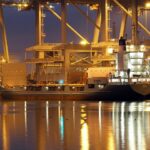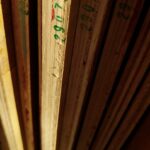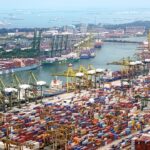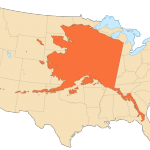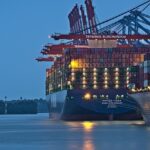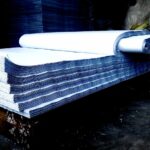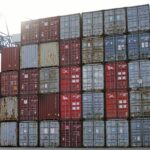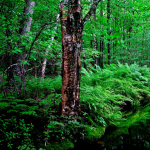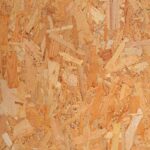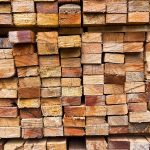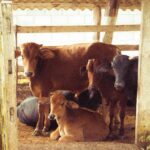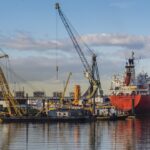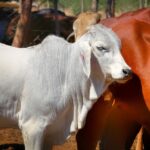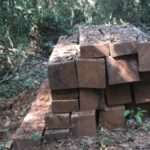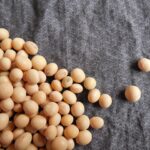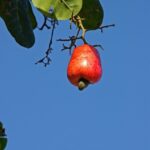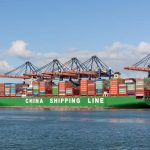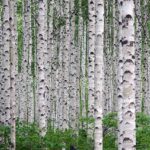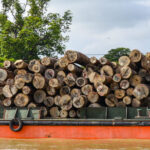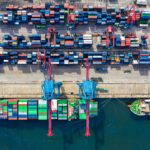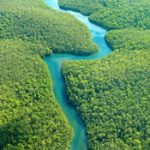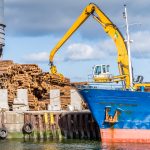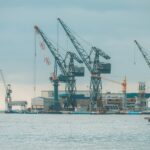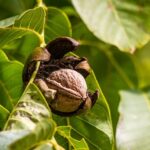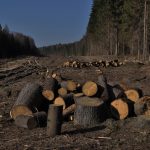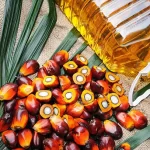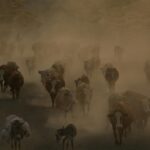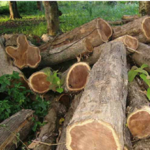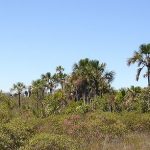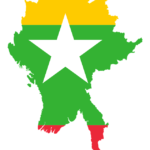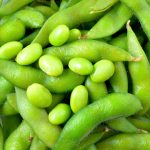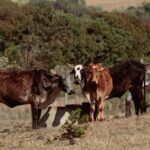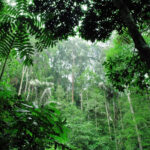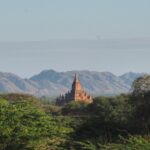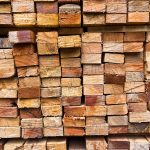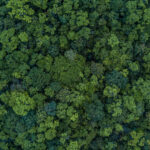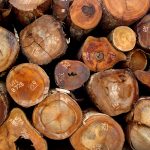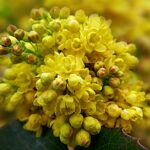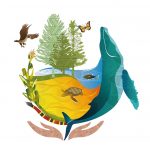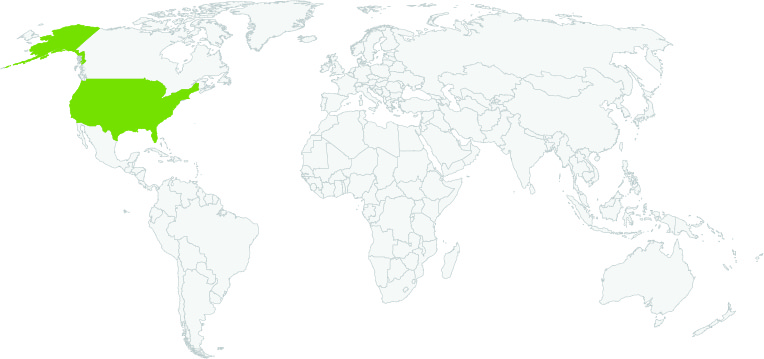
By integrating the best available spatial and statistical datasets, a new deforestation attribution framework (DeDuCE) provides a detailed quantification of deforestation associated with the production of agricultural and forestry commodities. DeDuCE reports 9,332 unique country–commodity deforestation–carbon footprints across 179 countries and 184 commodities annually from 2001 to 2022. Our findings indicate that while global efforts to curb deforestation appropriately focus on cattle meat, oil palm, rubber, soya, cocoa and coffee, global monitoring efforts have largely overlooked staple crops such as rice, maize and cassava.
European investment funds marketed as “sustainable” continue to hold large positions in companies whose activities drive deforestation and fossil-fuel expansion, revealing a significant gap between their branding and actual financial flows. €9 billion in so-called green funds are effectively bankrolling activities linked to Amazon degradation, despite commitments under the EU’s Sustainable Finance Disclosure Regulation. Major asset managers have included fossil fuel and agriculture-linked firms in portfolios labeled as sustainable, raising concerns about widespread greenwashing in the financial sector. Critics argue that current ESG criteria are too weak or too loosely applied, allowing capital to flow to companies with business models at odds with stated climate and biodiversity goals. The investigation also highlights the lack of transparency in how funds define and screen for sustainability, which can mislead investors and the public. Calls for regulatory tightening and clearer standards are growing, as policymakers and civil society push for sustainable finance to align more closely with environmental outcomes.
Officials in Pittsboro, North Carolina, launched an investigation after discovering what they described as an “unlawful” land-clearing operation taking place in a sensitive forested area. Within roughly an hour, Pittsboro issued a stop-work order and sent crews and engineers out to the site to assess any potential damage. Yet another stop-work order came shortly after, requiring that the landowner cease all activity and remove equipment from the property.
Department of Commerce sides with local plywood producers and will apply retrospective duties on Chinese shipments entering up to 90 days before January 16, 2026.
The preliminary findings were released late last week, confirming that producers in China, Vietnam and Indonesia – which supply the vast majority of decorative plywood entering the U.S. market – received highly favourable government subsidies that gave them an unfair advantage over domestic manufacturers. U.S. Customs and Border Protection is expected to begin collecting duties in the coming weeks once the determination is formally published in the Federal Register.
A coalition of conservation organizations filed suit challenging the Bureau of Land Management’s (BLM) “42 Divide Forest Management Plan” (42 Divide) near Camas Valley, Oregon. The agency proposes to aggressively log thousands of acres of diverse forest stands, even though more than half the land is in reserves set aside for habitat conservation. The area targeted for logging covers nearly 7,000 acres of public lands within the checkerboard of public and private lands in Douglas County, already heavily impacted by private industrial clearcuts.
A new report by EIA documents a large-scale illegal logging operation inside the Munduruku Indigenous Territory and traces more than 25,000 cubic meters of illicitly harvested timber through Brazilian supply chains to importers in France, Germany, Portugal, and the U.S. The investigation reveals how the weak enforcement of existing laws and ongoing delays to the EU Deforestation Regulation are allowing illegal Amazonian wood to continue flowing into international markets.
According to data from Việt Nam Customs, exports of timber and wood products reached nearly $1.7 billion in December 2025 alone, bringing total export value for the year to $17.2 billion – an increase of nearly 6 per cent compared with 2024.
Meanwhile, imports from China declined sharply to $1.4 billion, down 36 per cent compared with the previous year. Việt Nam’s market share of wooden furniture in the US increased significantly, rising from 40.5 per cent in the first eight months of 2024 to 45.3 per cent in the same period of 2025. In contrast, China’s share fell from 15.7 per cent to 10.4 per cent.
The EU is importing less logs and plywood, and burning less wood pellets for fuel as uncertainty over tariffs and duties, persistently weaker construction demand. Customs data shows that shipments of logs, plywood, and pellets all contracted year‑on‑year in November, even as prices for several products began to rise.
Malaysia has emerged as China’s fastest‑growing supplier of fibreboard, recording a remarkable 683% surge in shipments to 1,400 tonnes in the first nine months of 2025, according to new data from China Customs. The jump — the largest of any supplying country — comes as China’s total fibreboard imports rose 16% year‑on‑year to 45,000 tonnes – up to 50% of the world’s supply, signalling renewed demand from downstream manufacturers. New Zealand, Thailand, Germany, and Spain followed.
Vietnam remained China’s largest overseas market, with imports soaring 126% to 501,000 tonnes. Strong growth was also recorded in Saudi Arabia, Mexico, the United Arab Emirates, and Canada, each posting double‑digit increases. Exports to the United States and Nigeria softened, falling 9% and 1% respectively.
China’s wooden furniture sector, however, continues to face headwinds.
Export receipts fell 7% to US$16.69 billion in the first nine months of 2025, with shipments to the United States — China’s largest market — plunging 18% to US$4.24 billion. Despite the downturn, China maintained strong sales to other major destinations, exporting US$1.2 billion worth of wooden furniture to the United Kingdom and US$1.1 billion to Australia. Malaysia also remained a significant buyer, importing US$445 million worth of China‑made wooden furniture — an 18% increase year‑on‑year.
China’s wooden furniture imports also declined, falling 6% to US$461 million over the same period. Italy remained the largest supplier, accounting for 46% of China’s total imports, though shipments fell 9% to US$214 million. Declines were also recorded from Germany, Vietnam, and France. Whilst several smaller suppliers bucked the trend, with imports rising from Thailand, Slovakia, and Indonesia.
Amid global market volatility and climate challenges, Vietnam’s wood industry registered a historic threshold in 2025, with exports of timber and wood products exceeding US$17 billion for the first time, underscoring its role as a major export pillar of the national economy.
In 2025, exports of timber and wood products to the United States were estimated at US$9.46 billion, representing a year-on-year rise of 4.4% and accounting for approximately 55% of Vietnam’s total wood export value. Vietnam continues to hold its position as the largest supplier of wooden furniture to the US market.
In the first 11 months of 2025, wooden furniture exports reached US$9.434 billion, accounting for nearly 61% of the industry’s total export value. Several other product groups also recorded export turnover of US$1 billion or more each, including wood chips at US$2.22 billion; sawn wood, boards, and flooring at US$2.091 billion; and wood pellets at US$1.081 billion.
2025 presented unprecedented challenges for the industry. These included reciprocal tariff measures, anti-dumping and anti-subsidy investigations from the US, mounting pressure from the EU’s upcoming Anti-Deforestation Regulation (EUDR), as well as subsequent storms and floods at home that disrupted raw material supply chains and production.
Looking ahead to 2026, Nguyen Quoc Tri, Deputy Minister of Agriculture and Environment, said the forestry sector aims to maintain forest coverage at around 42%, achieve wood and forest product exports of roughly US$18.5 billion, and accelerate the development of large-timber forests. Key priorities include applying science and technology, advancing digital transformation, and strengthening trade promotion. Future efforts will also focus on diversifying export markets, reducing dependence on a small number of major markets, building the “Vietnamese Wood” brand, and expanding forest environmental services and the carbon market.
The Forest Stewardship Council has approved the updated FSC US Forest Stewardship Standard Version 2.0, officially published on January 1, 2026, with an effective date of April 1, 2026 and a transition period through September 30, 2027. The revised standard was developed over seven years with broad stakeholder input and aligns the U.S. standard with FSC International’s updated Principles & Criteria and global indicators. The update includes measures for adaptive management, vulnerability assessments, enhanced monitoring, expanded eligibility for non-timber forest products, and explicit recognition of traditional knowledge. It also strengthens traceability and due diligence requirements to support responsible forest management and maintain certification credibility across complex supply chains.
The ministry said that U.S. President Donald Trump on Wednesday signed a proclamation adjusting import tariff policies on timber, lumber, and their derivative products under Section 232 of the Trade Expansion Act of 1962. The move postpones higher tariffs on several finished wood products, including upholstered chairs, kitchen cabinets, and bathroom cabinets, from January 1, 2026 to January 1, 2027.
A federal court halted the South Plateau Project near Yellowstone National Park after conservation groups challenged its approval by the U.S. Forest Service. Although the project had been authorized by the agency, the court found that the Forest Service failed to comply with multiple federal laws. The ruling determined that the agency did not adequately disclose where and when it would build 56.8 miles of logging roads and clearcut more than 16,000 acres of National Forest, violating the National Environmental Policy Act. The court also found violations of the National Forest Management Act and the Endangered Species Act, including reliance on habitat standards that were not supported by science. The government is expected to appeal the decision.
Trump and Lula reopen trade dialogue as Washington lifts a key pulp tariff but continues a sweeping Section 301 investigation into Brazil’s forest‑product supply chain.
In July, Wood Central reported that the Trump administration was considering imposing a 50% tariff on large volumes of pulp and softwood plywood amid concerns about illegal deforestation and regulatory issues.
Interpol announced that from 15 September – 15 October, law enforcement agencies comprising police, customs, border security and forestry and wildlife authorities from 134 countries made a total of 4,640 seizures during Operation Thunder 2025.
On December 3, 2025, the Office of the U.S. Trade Representative (USTR) issued a formal notice implementing certain tariff-related elements of this deal. The notice states that certain tariff modifications are necessary to implement the trade and investment deal. To do so, the Harmonized Tariff Schedule of the United States (HTSUS) has been amended to implement certain tariff elements, including: (i) the country-specific reciprocal tariffs; (ii) Section 232 tariffs on automobiles and automobile parts; (iii) Section 232 tariffs on timber, lumber, and their derivatives; and (iv) tariffs on certain aircraft and aircraft parts. In most instances, the tariff rate on most goods will be 15% or a “most-favored nation” tariff rate.
Environmental nonprofit group MountainTrue and the Center for Biological Diversity have filed a joint lawsuit against the United States Forest Service for what they call illegal logging in the Nolichucky River Gorge.
According to the nonprofit, the Forest Service has begun a logging project in Nolichucky Gorge, part of the Pisgah National Forest, under the “guise of a long-expired emergency order,” without public review or environmental review.
That is, according to a new report, which reveals that even if the United States stopped exporting lumber abroad, it would still have a 7 per cent gap between supply and demand. As it stands, the United States accounts for 27 per cent of softwood lumber demand, according to the O’Kelly Acumen and Global Wood Trends report, but produces only about 20 per cent of global supply.
That gap, the authors write, has been filled by imports for decades: over the past 50 years, foreign shipments have supplied between roughly one‑quarter and one‑third of total U.S. consumption. Canada provides the bulk of those imports — approximately 80 per cent — and is projected to meet more than 22 per cent of the U.S.’s needs in 2025. When growing shipments from Europe are factored in, nearly 30 per cent of U.S. requirements will be met by foreign producers.
China’s government has agreed to resume purchasing hardwood logs. It is not clear if this is a requirement under the trade agreement, as it apparently was for soy and sorghum.
On October 31, DHA provided official comments and analysis to the Office of the U.S. Trade Representative for use in the USTR’s 2026 National Trade Estimate Report on Foreign Trade Barriers. DHA highlighted how the flood of illegally dumped and subsidized imports from Asia now dominates 80% of the U.S. hardwood plywood market and how this has decimated U.S. manufacturers and workers.
New EU-US trade deal will take precedence over new tariffs, putting more than a billion dollars worth of European furniture at an advantage against Asian competitors.
More than 23% of all upholstered furniture and 28% of all kitchen cabinets imported into the United States will be fully exempt from s232 tariffs, set to take effect on October 14, after Donald Trump revealed that the vast majority of furniture coming from the EU will be capped at 15% under the new EU-US trade deal agreed to in late July.
More than 25% of lumber used to build housing across the United States will now be subject to 45% direct and indirect tariffs and duties after Donald Trump slapped a 10% global tariff on all lumber imported into the United States.
Earthsight traced U.S. beef imports to Brazilian supply chains and found that nearly a quarter originates from high-risk slaughterhouses in the Amazon. U.S. imports of Amazon beef nearly doubled in 2024, a trend continuing into 2025. The state of Rondônia is the second-largest source, shipping over 34,500 tonnes of beef to the U.S. between January 2023 and June 2025.
A key driver was Rondônia’s April 2025 law granting amnesty to hundreds of cattle ranchers who had illegally cleared Amazon land for pasture, while also annulling fines against meatpackers such as JBS. Brazil’s major meatpacking firms — JBS, Marfrig, and Minerva — continue supplying the U.S. despite repeated links to illegal activities. The U.S. imported $1.1 billion of Brazilian beef and cowhides in 2022, but with the FOREST Act stalled in the Senate, there is currently no U.S. legal barrier to prevent imports tied to illegal deforestation.
A new report from the Financial Accountability & Corporate Transparency Coalition warns that illegal gold mining has become one of the largest illicit economies in the Americas, in some cases generating more money than drug trafficking. The trade fuels transnational criminal groups such as Ecuador’s Los Choneros and Venezuela’s Tren de Aragua, threatens U.S. financial integrity through money laundering, and is linked to human rights abuses, displacement, and environmental destruction. In Peru, Venezuela, and Ecuador alone, the illegal trade is worth about $8 billion annually. Mercury pollution from mining devastates rivers and ecosystems, while Indigenous and Afro-descendant communities face malnutrition, disease, and rising violence. Brazil recently declared the Yanomami people in crisis due to illegal mining’s impacts.
The report criticizes the Trump administration for cutting staff and programs that targeted environmental crimes, reassigning DOJ prosecutors, reducing DHS enforcement capacity, defunding State Department initiatives, and dismantling USAID programs that once supported Peru’s anti-mining efforts. Meanwhile, traffickers exploit U.S. demand, smuggling gold disguised as jewelry or even buttons, with Miami airport seizures exceeding a ton in recent years. The U.S. financial system remains a key laundering hub, weakened further when Trump’s Treasury excluded most firms from beneficial ownership disclosure rules. Recommendations include restoring funding, tightening port and aviation monitoring, creating sanctions against environmental crime, and improving cross-border law enforcement. Regional cooperation has also advanced, with the Declaration of Bogotá signed by eight Amazon countries to address mercury use, traceability, and protection of environmental defenders.
The United States of America (US) has reported sharply lower imports of various tropical wood hardwood products in June this year as the Trump administration continued to roll out an ever-evolving policy of trade tariffs.
While imports from most major trading partners fell in June, year-to-date figures for the top traders are well ahead of last year. Imports from Indonesia, the leading supplier, were up 60 per cent from last year through June while imports from the number two supplier, Vietnam, were 36 per cent ahead of last year’s pace. Through the first half of the year, the total import volumes of hardwood plywood are up 20 per cent over 2024,” said ITTO report
Since 2019, Brazil has deforested about 24.4 million acres—an area the size of Indiana—with 97% converted to agriculture (MapBiomas). U.S. farm groups argue this large-scale forest conversion fuels Brazil’s overproduction of corn, beef, and pork, depressing global prices and undercutting U.S. producers. For example, Brazil exported $211 million in ethanol to the U.S. in 2024 versus just $53 million flowing the other way, aided by expansion of corn ethanol linked to deforestation.
Trade tensions are sharpest in beef and pork. In the first half of 2025, Brazil shipped $1.13 billion worth of beef to the U.S., compared to only $425,000 from the U.S. to Brazil. Likewise, Brazil exported $104 million in pork to the U.S. in 2024, while U.S. pork producers were nearly shut out of Brazil. U.S. producers complain they face stricter environmental and animal-welfare rules, while Brazilian exports benefit from deforestation-driven expansion and weaker standards. Brazil, for its part, insists it is curbing illegal deforestation and complying with international trade rules.
Brazilian wood exporters are under mounting pressure as sweeping U.S. tariffs begin to disrupt trade flows, (apparently) prompting widespread order cancellations and threatening shutdowns across key production regions. The latest bulletin from the International Tropical Timber Organisation (ITTO) paints a grim picture, reporting that companies in Brazil’s South, Southeast, and Amazon regions are already contending with rising uncertainty and operational strain.
The disruption follows a Section 301 investigation launched last month by the Trump administration, targeting Brazil’s trade practices and environmental record. As reported by Wood Central last month, the probe will assess whether the Lula government has engaged in unfair trade policies, preferential tariffs, corruption, and illegal deforestation—allegations that could further complicate bilateral relations.
Earthsights’ investigation reveals wood used in America’s recreational vehicles (RVs) can be traced to the devastation of Borneo’s rainforests. The RV industry is the largest consumer of tropical wood in the United States, using an average of 500 giant trees every day.
Just three corporations make 86 per cent of the RVs sold in America. Earthsight and Auriga found plywood from deforestation in Indonesia in the supply chains of all three. This includes the US’s best-selling RV brand, Jayco, whose wood supplies are linked to a project clearing three football pitches of orangutan habitat every day.
These findings contradict RV companies’ declared commitments to nature and sustainability.
Over the past 15 years, China has diversified away from U.S. suppliers—dropping from 51% of its soy imports in 2009 to just 21% in 2024—while dramatically increasing purchases from Brazil to 74.65 million metric tons and from Argentina to 4.1 million metric tons. Reflecting not only risk management against US trade whims, Brazil’s rise as China’s dominant supplier is driven by low land costs, favorable exchange rates, and major infrastructure upgrades, such as the $2.5 billion modernization of the Port of Santos, which have improved export capacity and efficiency.
This shift gives China considerable leverage over how soy is produced in Brazil. As the world’s largest soy buyer, China could use its purchasing power to insist that its imports meet strict legality and sustainability criteria, aligning supply chains with deforestation-free and climate-friendly standards.
If Beijing chooses to take this path, it could position itself as a global leader in climate action—helping to reduce deforestation-linked emissions, protect biodiversity, and influence farming practices in one of the world’s most important agricultural frontiers. By making deforestation-free soy a market requirement, China would not only safeguard its own food security but also send a powerful signal that economic growth and environmental stewardship can go hand in hand.
Today, the U.S. Department of Commerce announced its final decision in the sixth administrative review of the countervailing duty order on softwood lumber from Canada. The US Department of Commerce announced the final tariff rate for non-selected companies, which applies to most Canadian companies, increased to 14.63 percent, up from 6.74 percent determined in the previous administrative review. Thus, duties on Canadian softwood lumber are now a combined rate of 35.19%.
More than 80% of the United States lumber imports came across it’s North American border, with more than 70% of softwood lumber used to build housing.
For the first time, China has overtaken the US as Vietnam’s top buyer of cashew nuts, spending $526 million in the first half of 2025 alone.
Statistics also show that China, the US, the Netherlands, Germany, and the United Arab Emirates were Vietnam’s top five cashew markets in June 2025. While exports to the US and Germany declined, shipments to other major markets increased.
The US is showing a growing demand for processed cashew products, reflecting consumer preference for convenient, high-quality food. At the same time, the country is diversifying its supply sources and gradually reducing dependence on Asian markets.
In parallel, Vietnamese cashew exporters must enhance quality control and traceability to meet the stringent standards of markets like Japan and the EU.
The Trump administration announced plans Monday to roll back a conservation rule that has protected nearly 60 million acres of undeveloped national forest land for over 20 years — a decision that has triggered strong opposition from environmental advocates and conservationists.
Agriculture Secretary Brooke Rollins revealed that the administration is initiating efforts to repeal protections covering approximately 59 million acres of roadless forest, including a significant portion of Alaska’s Tongass National Forest — a nearly 9-million-acre expanse of old-growth wilderness, per the Post. Rollins made these remarks while speaking before a gathering of Western governors in New Mexico.
“Theoretically, the US federal lands have ample timber supplies to offset the volume of softwood lumber imported from Canada,” he said. But, “increasing federal timber harvests by (at least) 450% may be a challenge as many headwinds, aside from those related to lumber production capacity, may limit the government’s ability to ramp up timber production.”
since the early 1980s, the USFS timber harvest levels have dropped significantly thanks to beefed-up environmental regulations, which coupled with the impacts of wildfire, and a declining workforce participation, make ramping up production extremely difficult.
On March 1, Trump signed the Immediate Expansion of American Timber Production executive order to increase domestic timber supply. This order seeks a 25% increase in federal lands’ timber production, promoting security and sound forest management practices.
This piece is the second in a two-part series by the Fastmarkets team about this policy’s feasibility. Part one of this series, written by Dustin Jalbert, explored converting capacity to replace finished products sourced from Canada.
This viewpoint examines whether US federal lands have enough timber to completely meet domestic wood product needs.
To answer this, we consider three sub-questions regarding timber sufficiency and harvesting potential on federal lands:
- First, do US federal lands provide sufficient timber resources to increase harvest levels and, if so, where?
- Second, if the resources exist, where would increased harvesting occur on these federal lands?
- Lastly, we must ask if undertaking the additional timber harvest levels is realistically feasible.
President Trump has paused additional tariffs for most counties in the world – keeping the minimum 10 percent across the board reciprocal tariffs announced earlier this month. While pumping the brakes on tariffs in other countries, at least temporarily, Trump hit China hard by increasing that number to 145% on Chinese goods imported to the U.S.
In response, China’s Ministry of Finance matched the U.S.’s increased tariff with a 125% rate on American products, including on hardwoods and other wood-related products.
esterday, Federal District Court Judge Ann Aiken ruled that the Bureau of Land Management’s (BLM) “Integrated Vegetation Management” (IVM) logging program illegally authorized the destruction of old-growth forest stands located within Late Successional Reserves.
“Reckless timber sales like this are exactly why we need strong public oversight,” said John Persell, Staff Attorney for Oregon Wild. “Trump’s executive order to ramp up logging pushes for more destructive projects to benefit the timber industry, but the forests at Penn Butte and Late Mungers should be protected as key habitat and for carbon storage, not sacrificed for corporate profit.”
FSC and Assurance Services International (ASI) announce the launch of the Teak Corridor transaction verification (TV) loop. FSC and ASI have conducted TV loops on FSC-certified high-value timber species like teak (Tectona grandis) in the past. The previous teak TV loop, along with other available information, indicate the possibility of integrity risks in the segregation of FSC-certified and non-certified teak in the supply chains.
Therefore, FSC recommends certificate holders with teak in their certification scope to apply additional due diligence in selecting their teak suppliers and following FSC rules to ensure that the teak products they purchase are legitimate and within the FSC certificate scope of the seller.
More than 173,000 cubic metres of logs were traded from the United States to China in December, making China the United States second-most important export market for logs and the United States China’s third-most important market. That is according to new data provided by China Customs, revealing that trade in US-originating sawlog jumped more than 40% from December 2023.
China left off hardwood and softwood logs in its ongoing tit-for-tat trade war with President Trump, revealing that from today, 10 February 2025, China will impose a 15% border tax on imports of US coal and liquefied natural gas products – along with a 10% tariff on American crude oil, agricultural machinery and large-engine cars, which comes in direct response to Trump’s decision to impose a 10% tariff on a wide range of Chinese imports – including timber furniture.
More than $360 million of Russian birch entered the United States via Indonesia and Vietnam last year.
In 2024, the United States imported over $62 million of birch plywood from Russia,” according to a letter from the American Hardwoods Export Council (AHEC). “However, these direct imports from Russia pale compared to the nearly $200 million of birch plywood imported from Vietnam and the nearly $160 million imported from Indonesia.”
Beneficial ownership transparency is a critical element of enforcement of laws and regulations to combat illegal deforestation.
In December, a US federal court issued a nationwide injunction to suspend enforcement of disclosure requirements under the Corporate Transparency Act. The law requires small businesses to report the personal information of their owners and managers to FinCEN at the Treasury Department. On December 23, another court overruled the injunction, which was then reinstated on December 26. The U.S. government appealed to the Supreme Court to reinstate the filing requirements, creating more uncertainty.
As of January 23, 2025, the US beneficial ownership reporting requirements are paused and enforcement is suspended until further notice.
North America is the major beneficiary of the EU’s Green New Deal, with huge shipments of imported lumber to replace European-sawn wood and panels that will be limited under the LULUCF Regulation.
Amazon timber from carbon credit projects targeted by the Brazilian Federal Police was sold to companies in Europe and the United States. The group is suspected of land-grabbing and laundering timber from Indigenous territories and protected areas.
Most of the exported timber belongs to the almost-extinct ipê species and was sent to a company in Portugal. The group is also suspected of using fake documents to launder cattle raised in illegally deforested areas.
More than US $10 billion worth of timber is traded between the United States and China every year. China’s economy is still grappling with subdued consumer spending, a lingering property crisis, and deflation risks. Despite a projected growth rate of 5% this year, renewed trade confrontations could jeopardise its export-driven recovery, forcing Beijing to depend on domestic economic measures to sustain growth. As a result, the Chinese Politburo has indicated a shift from its “prudent” monetary stance to a “moderately loose” approach, signalling potential reductions in interest rates, bank reserve requirements, and enhanced central bank funding.
President-elect Trump plans to introduce a 60% tariff on all goods traded into the United States from China—a move that would have major implications for the global supply chain of timber, pulp, and paper products. As it stands, US $10 billion worth of wood is traded between the US and China every year, up from $7 billion a decade ago.
In order to construct their wind turbine blades, energy giants in the U.S., such as GE Vernova, and leading manufacturers in China, like Goldwind (金风科技) and Mingyang (明阳风电), appear to have relied for years on balsa wood sources that include timber stolen from protected forests and the exploitation of Indigenous communities in the Amazon. This report reportedly connects the dots between deforestation, human rights violations, and some of the world’s leading wind turbine blade manufacturers.
Cambodian companies producing engineered hardwood flooring for the U.S. market are getting their timber from a company described as a cartel that’s been repeatedly accused of illegally logging inside protected areas. Angkor Plywood is the sole supplier of plywood to flooring manufacturers based in the Sihanoukville Special Economic Zone, and claims the wood comes from its acacia and eucalyptus plantations.
However, watchdog groups, industry insiders and independent media, including Mongabay, have long documented evidence of Angkor Plywood and its supplier, Think Biotech, felling tropical hardwoods inside Prey Lang Wildlife Sanctuary.
AHF Products, which claims to be the biggest U.S. wood flooring manufacturer, runs a factory in the Sihanoukville SEZ, but denies any protected wood entering its supply chain — a claim industry veterans question, given Angkor Plywood’s notoriety.
On September 19, 2024, the United States and Ecuador convened the inaugural meeting of the of the Trade and Environment Committee (Committee) under the United States-Ecuador Trade and Investment Council. The Committee, chaired by Assistant United States Trade Representative for Environment and Natural Resources Kelly Milton, exchanged views and priorities regarding trade and environment policies, including addressing the climate crisis, and finalized the Committee’s work plan, which establishes a series of in-depth discussions to deepen our bilateral trade relationship. The Committee also shared perspectives and experiences on forest sector governance and combating illegal logging and associated trade.
The Office of the United States Trade Representative (USTR) announced enforcement action under the United States-Peru Trade Promotion Agreement (PTPA) Forest Sector Annex. USTR requested the Government of Peru to verify that five timber shipments exported to the United States from Peru complied with applicable Peruvian laws and regulations.
A global shortage of cocoa beans has led to a race among cocoa bean processors to secure high-quality beans, while shunning older varieties. The UK has a large stockpile of lower quality beans from Cameroon, viewed in the industry as of lower quality. Companies had hoped the incoming EU Deforestation Regulation would allow the lower-grade material to be written off as unusable. But the EUDR allows existing stocks to be “grandfathered” — meaning they could still be bought and sold.
According to the Indian Centre for Science and Environment, the country’s 2022 demand for timber was 63 million cubic metres—30 million cubic metres for domestic production and 33 million cubic metres from imported sources.
Uruguay is India’s top market for sawlog, with India’s Ministry of Commerce and Industry reporting that Uruguyans account for more than 20% of total trade for the first six months of 2024 (487,700 cubic metres) ahead of Australia (14.4% or 347,600 cubic metres), Ecuador (12.1% or 293,300 cubic metres), Argentina (9.1% or 213,700 cubic metres) and the United States (7.6% or 193,000 cubic metres).
India has emerged as one of the United States’ most important export markets, with 116,000 cubic metres of softwood lumber shipped from the West Coast to India last year alone. Already its fastest-growing hardwood market, the US is capitalising on India’s construction industry and, in the process, making up for a drop in Chinese demand—with total lumber exports almost tripling for the first six months of 2024 over last year.
While import volumes remain lower in 2024 compared to 2023, India is competing with China to become the world’s largest consumer market for structural timbers. The Modi Government is grappling with a 19 million-unit housing shortage, which will double over the next five years.
Fuelling India’s demand for roundwood is a decision made in 2020 to reverse a 27-year ban on using timber in public buildings.
The United States has launched a new initiative aimed at countering the illicit financing of environmental crimes in the Amazon, signaling that the issue is becoming a higher international priority. U.S. Treasury Secretary Janet Yellen recently introduced the Amazon Regional Initiative Against Illicit Finance, designed to enhance training, cooperation, and information sharing to assist authorities in pursuing money-laundering investigations tied to transnational criminal organizations. This marks an escalation in efforts to combat what is now recognized as the third most profitable category of organized crime globally.
Environmental crimes rampant across the 6 million km² Amazon basin include land grabbing, illegal logging, illicit mining, and unauthorized agriculture and ranching.
American Hardwoods Export Council (AHEC) highlight challenges facing the US hardwood sector to satisfy the EUDR. The risk of US hardwood deriving from such deforested land is extremely low, according to AHEC. “It’s estimated that disturbance of hardwood forest in terms of conversion to agriculture is running at about 0.005% of the total area a year.”
Regardless, the US hardwood sector will have to provide proof that each consignment of timber is legal and deforestation-free, and that’s the problem. The fragmentation of forest ownership and the low intensity management in the USA’s nine million private holdings. With mills sourcing from a supply base of small forest plots, often family owned, they would need to provide multiple geolocation coordinates for each timber shipment. Moreover, as these plots may only be harvested once a generation, sourcing coordinates would be different from year to year.
According to Eurostat, the EU’s statistical office, between June 2021 and December 2023, the EU imported more than €34 million worth of teak directly from Myanmar.[1]
Notably, total teak imports from Myanmar into the EU decreased from around €23.5 million in 2022 to just over €3.8 million in 2023. While this is a positive decrease in the trade, this figure should be at zero.

Teak decking on a sailing yacht
And does this tailing off of direct trade mean demand for teak has decreased? It is unlikely. EIA strongly believes that Burmese teak is being shipped into EU and US markets via other countries by traders who disguise the wood’s true origin to circumvent sanctions.
A prime example is that of neighbouring India, which has seen an increase of teak imports into the EU rise from a total figure of around €500,000 in 2021 to nearly €7.5 million in 2023, according to Eurostat.[2] Similar upward trends are seen for shipments to the US, according to the global trade database Panjiva.
US authorities increasingly suspicious of the surge in plywood and lumber coming from Vietnam, Malaysia and other countries in the wake of the US introducing an 85% tariffs on plywood coming from China. American timber traders are at huge risk of prosecution with Chinese timber exporters now using third-party countries in Asia to trade into the US supply chain.
Special agents are cracking down on the surge of Chinese timber evading tariffs and entering American supply chains after a small-time timber importer was the latest to be sentenced, this time for three years probation and a US $360,000 fine after it falsified documentation to avoid paying import duties. The sentencing comes just months after a Miami husband and wife were both sentenced to 57 months in prison for illegally importing and selling up to US $65 million of plywood manufactured in China and, in the process, violating the Lacey Act and customs laws.
Russia and Belarus now account for 70% of all Chinese lumber imports.
Russia is ramping up plywood production, with exports to China surging more than 344%, according to new data provided by Roslesinforg – the Russian state-owned customs agency.
The latest numbers come after China Customs reported that exports to China had tripled for March. environmental groups have flagged concerns that China is operating as a broker for Russian and Belarussian timber, with plywood made from Russian birch entering European markets via China, Vietnam and a series of “friendly countries” across Eurasia.
In a sign of the continued bipartisan consensus about unfair trade with China, the Biden administration will impose $300 billion in tariffs on electric vehicles, microchips, and other goods from China. This action will also extend the Section 301 tariffs on hardwood plywood and engineered wood flooring.
Expect increasing re-routing of Chinese plywood and engineered wood flooring through 3rd countries such as Vietnam, Cambodia in efforts to obscure country of origin and avoid these tariffs.
Plywood imports from Vietnam have now tripled – with US cracking down on Chinese traders using Vietnamese ports to bypass trade regulations,
The vast majority of imports are made up of birch plywood (77% or 187,000 cubic metres), with Brazil (191,000 cubic metres), Indonesia (140,000 cubic metres), Chile (119,000 cubic metres) and Canada (114,000 cubic metres) responsible for the balance.
Corporate Transparency Act (CTA) was designed to help law enforcement prevent money laundering by requiring shell companies to report information regarding their beneficial owners (BOI) to the Department of the Treasury. The Decorative Hardwoods Association and other US associations believe that the way the CTA has been designed, the brunt of its reporting burden and excessive penalties will be shouldered by law-abiding, Main Street businesses.
While this legal action focused on false labeling of country of manufacture, it echoes some of the same issues that US Lacey cases have with regard to false labeling of country of origin. Williams-Sonoma has multiple lines of furniture, including those under its brands Rejuvenation, Pottery Barn Teen and Pottery Barn Kids.
A recent investigation of illegal tree harvesting on the Mark Twain National Forest that led to the indictment of a southern Missouri man used an uncommon form of evidence—DNA from an illegally harvested log. This case marks the first time that tree DNA was used to investigate a federal timber poaching case in the eastern United States.
Russia is now facing a growing gap between timber production and log supply, with production growing 5% in 2024, while commercial logging of Russian forests has nose-dived 26%.
That is according to Lesprom’s “Russian Lumber Industry Insights,” which reports that Russian sawmills are now bleeding thanks to a critical shortage in raw materials and are struggling to meet rising demand from major export markets.
The problem for Russia is that Western Companies—which provided much of the foreign direct investment needed to modernise logging operations in the decades leading up to the 2022 war—have now exited the country on mass, creating large gaps in the Russian supply chain.
A new analysis by Global Witness, an environmental watchdog organization, and Trase, a nonprofit that analyzes supply chains, finding that palm oil is now the commodity consumed by Americans that contributes most to the loss of tropical forests. Researchers looked at import data and deforestation rates and found that palm oil bought by Americans may have caused 103,000 acres of deforestation, mostly in Indonesia.
Sanctioned Russian birch plywood worth an estimated €40 million has been seized at Rostock Port in Germany. The ship was en route to the United States, but stopped in Germany for an emergency. The Canadian-owned shipping firm argue that the vessel’s cargo should be exempt, because it only docked in Germany due to an emergency. German Customs have rejected that argument. The wood may be linked to a Russian timber giant Sveza, which is part-owned by Alexei Mordashov, Russia’s richest man and a subject of EU and US sanctions.
Also reported here:
€40M of Conflict Timber Seized: How the US $2B Log Trade Fuels War | Wood Central
The New York state’s Attorney General is initiating a lawsuit against Brazilian meatpacker JBS for misrepresenting its environmental impact with “fake sustainability claims to boost sales”. A large part of the lawsuit focuses on JBS setting a net zero goal for 2040, but not to releasing a realistic plan to achieve that goal. A significant amount of the company’s emissions come from deforestation in Brazil to clear new land for cattle grazing.
Please use the sharing tools found via the share button at the top or side of articles. Copying articles to share with others is a breach of FT.com T&Cs and Copyright Policy. Email [email protected] to buy additional rights. Subscribers may share up to 10 or 20 articles per month using the gift article service. More information can be found here.
https://www.ft.com/content/4335c54a-a099-46c6-9d0f-2f8edff7dc8e
Brazilian beef group JBS is facing mounting opposition to its planned US share listing from politicians and campaigners, with New York officials now accusing it of “greenwashing”. The state’s attorney-general Letitia James announced she was suing the American arm of JBS last week, alleging that it misrepresented its environmental impact with “fake sustainability claims to boost sales”.
Illegal timber from Myanmar continues to be imported into Europe and the US despite Western sanctions. In Europe, Italy continues to stand out as a destination for teak and other controversial forest products. Between January and October 2023, Italian companies imported more Myanmar wood products than any other European country — about $3.3 million worth — for use in furniture and construction, according to Italian government data analyzed by the national timber trade association FederlegnoArredo.
The destruction of the Cerrado is closely linked to the growing demand for meat and dairy. This report shows that some of the world’s largest investment funds that have put billions into buying farmland in the Cerrado, including pension funds in Sweden and Germany, Harvard University’s endowment, and the Teachers Insurance and Annuity Association, better known as TIAA, the $1.2 trillion pension fund for 5 million people across the United States. Thanks in part to its investments in Brazilian farmland, TIAA has become one of the largest farmland investors in the world. Through its wholly owned subsidiary, Nuveen Natural Capital, the fund has accumulated some 3 million acres across 10 countries. Its investments in Brazil, where it manages 1 million acres, are some of its most controversial holdings.
On January 26, 2024, the US Departments of State, Treasury, Commerce, Homeland Security, and Labor, and the Office of the US Trade Representative published a Supplemental Business Advisory (“Supplemental Advisory”) intended to highlight additional high-risk sectors and activities and update guidance for individuals, businesses, financial institutions, and other persons (e.g., investors, consultants, non-governmental organizations, due diligence service providers) regarding continued risks of doing business in Myanmar/Burma. The Supplementary Advisory incorporates significant sanctions developments against Myanmar since the previous advisory on similar topics was issued in 2022.
The timber sector is listed as “of concern” with a summary of risks identified in the Advisory, as well as risk mitigations recommended by the Advisory.
A Florida husband and wife, Noel and Kelsy Hernandez Quintana were both sentenced yesterday to 57 months in prison for illegally importing and selling between $25 million and $65 million worth of plywood products in violation of the Lacey Act and customs laws. In addition to their prison sentences, the Quintanas were ordered to pay, jointly and severally, $42,417,318.50 in forfeitures. According to a US District Attorney, the defendants evaded ” legally mandated customs duties on plywood manufactured in China using Russian timber. Moreover, … the defendants covered up their criminal scheme to violate federal environmental law, while also unjustly enriching themselves.”
The U.S. imposed sanctions against Nicaragua in 2022 but numerous mines are still operating like normal or even expanding, according to a new report from the Oakland Institute, a think tank dealing with social and environmental issues.
Despite the sanctions, the U.S. was Nicaragua’s largest gold importer last year, bringing in around $465 million.
Expanding mining concessions has resulted in pollution and human rights violations against Indigenous communities.
The global extraction of raw materials is expected to increase by 60% by 2060. The stripping of Earth’s natural materials is already responsible for 60% of global heating impacts, including land use change, 40% of air pollution impact, and more than 90% of global water stress and land-related biodiversity loss, says the report, due to be released in February.
In a bid to combat deforestation ahead of new EU rules, ADM is expanding its traceable soybean pilot and regenerative agriculture initiatives. The commodities giant has just loaded and shipped its first vessels of verified, fully traceable soybeans from the US to Europe and intends to expand these capabilities to other key locations across North America in the 2024 growing season.
A 24-month project is being administered by the CEC – a joint initiative of the US, Canadian and Mexican governments – to “increase understanding and awareness of wood products; helping consumers support SFM (or Sustainable Forest Management) and contribute to the fight against illegal logging through their purchase power.”
Coffee is a globally traded agri-commodity that is also a major driver of deforestation, mass extinction, child labor, slavery, and other abuses.
The FOREST Act just introduced in the U.S. Senate would regulate palm oil, cocoa, rubber, cattle, and soy – but not coffee. Also this month, the U.K. announced details of its long-awaited deforestation legislation, but it doesn’t cover coffee, either.
It’s time for regulators in these top coffee consuming countries to wake up, recognize the urgency, and regulate coffee, a new op-ed argues.
This post is a commentary. The views expressed are those of the author, not necessarily of Mongabay.
AidEnvironment has e mapped the Colombian palm oil supply chain, assessed how the Unites States is tied to scope-3 emissions linked to global commodity trade and consumption. We have also mapped importing operators eligible under the EU Deforestation Regulation. Their datasets combine thousands of direct and indirect suppliers of key meatpackers, soy traders, and oil palm and industrial tree concessions globally with rural cadastre data, allowing for monitoring of real-time deforestation, degradation, and fires in their plots of land.
Brazil’s forest exports are booming, and it is now supplying cross-laminated timber panels, glulam, parquet and laminated flooring, sandwich panels, railway sleepers and rounded saw wood to global markets.
And with the return of left-leaning Luiz Inácio Lula da Silva as president of Brazil, environmental protection has shot to the forefront of the political agenda, with the government now subsiding export shipping costs in a rush to seize the commercial opportunities accompanying the global green transition.
Brazil’s federal government subsidies surged to the highest level in six years in 2022. These subsidies extend to the shipment costs for manufactured wood exports such as laminated beams, CLT panels, glulam, parquet and laminated flooring, sandwich panels, railway sleepers or just rounded saw wood.
China has become the world’s biggest importer of beef, and Brazil is China’s biggest supplier, according to United Nations Comtrade data. More beef moves from Brazil to China than between any other two countries.
But the Brazilian cattle industry is a major driver of the destruction of the Amazon rainforest. Data analysis by The Associated Press and the Rainforest Investigations Network, a nonprofit reporting consortium, found that a little-known American company is among the key suppliers and distributors feeding China’s hunger for beef – and the Amazon deforestation that it fuels.
Salt Lake City-based Parker-Migliorini International, better known as PMI Foods, has been a major beneficiary of the beef trade between Brazil and China. PMI has shipped more than $1.7 billion in Brazilian beef over the last decade – more than 95% of it to China, according to data from Panjiva, a company that uses customs records to track international trade. Over the last decade, Chinese beef imports have surged sixfold, U.N. Comtrade data shows, and PMI has helped satisfy China’s growing demand.
FACT’s new report draws on interviews with local and regional activists, indigenous leaders, anti-money laundering experts, and government officials in Peru, Colombia, and the United States to show how financial secrecy contributes to facilitating these crimes. The report lays out a comprehensive U.S. reform agenda.
The report by the Financial Accountability and Corporate Transparency (FACT) Coalition, published on Oct. 26, said that “critical gaps” in the U.S. anti-money laundering system are vulnerable to exploitation by criminal groups, including those behind the destruction of the Amazon, the world’s largest tropical rainforest.
FACT’s analysis focuses on forestry crimes and illegal mining in Peru and Colombia. The report also summarizes how U.S. importers sidestep the law by not trading directly with the blacklisted Myanmar Timber Enterprise (MTE) but instead with non-sanctioned Myanmar exporters and middlemen based in Singapore, Thailand and other third countries.
The United States, as the world’s largest economy and premier supplier of financial secrecy, has a crucial role to play in denying financial safe haven to criminals that would degrade the Amazon. The FACT Coalition’s 100-plus members, including prominent environmental organizations, advocate for policies to combat the harmful impacts of corrupt financial practices.
FACT’s new report draws on interviews with local and regional activists, indigenous leaders, anti-money laundering experts, and government officials in Peru, Colombia, and the United States to show how financial secrecy contributes to facilitating these crimes. The report lays out a comprehensive U.S. reform agenda.
ALBANY, NY – The New York Tropical Deforestation-Free Procurement Act (S.4859/A.5682) passed in the New York State Senate today as part of a package of environmental bills and will next head to the State Assembly. The legislation, sponsored by Sen. Liz Krueger (D-28) and Asm. Kenneth Zebrowski (D-96), builds on New York’s climate and justice leadership and is based on the state’s decades-long success of implementing common-sense procurement reforms. The legislation ensures that state and local government procurement does not fund climate destruction, specifically tropical deforestation, tropical primary forest degradation and associated abuses of the rights of Indigenous Peoples and local tropical communities.
The US Department of Commerce (DOC) recently
unveiled an extension of the deadline for issuing its final
conclusion on a trade remedy duty evasion probe into
hardwood plywood imported from the Vietnamese market.
This marks the sixth time that the DOC has announced an
extension, with the final determination expected on 2 May.
In July 2022, the DOC announced the preliminary
conclusion of the case, saying that plywood from Vietnam
using materials from China should be subject to the same
anti-dumping and anti-subsidy duties applied to the
northern neighbour.
Ashland is the unexpected home of the country’s only full-service forensic laboratory devoted to tracking illegally transported animals and plants. Now the lab is employing a new strategy to get forensic tools to U.S. ports to stop the illegal timber trade.
Florida companies Teakdecking Systems and Florida Teak imported more than half a million pounds of Burmese teak from Myanmar despite U.S. economic sanctions against the Myanma Timber Enterprise, the state firm that de facto controls the country’s timber sector.
Both tout certifications from Singapore-based Double Helix Tracking Technologies, a third-party company that checks whether the sourcing of teak is clean.
Double Helix is still verifying shipments from Myanmar but is unable to do DNA tests anymore and business is dwindling, Thomas said. The service it offers now is to check that private traders bought their teak from Myanma Timber Enterprise prior to the sanctions and to ensure that the teak did not subsequently pass through any facility whose majority-owners were a sanctioned entity before shipping.
Sanctions experts told the Herald that traders are taking a huge risk if they are importing teak from Myanmar post-sanctions, regardless of when the order was placed and how it was stored and transported.
Deforestation Inc. reporters in a dozen countries investigated weak government efforts and loopholes allowing companies to keep trading Myanmar teak, a natural resource controlled by the military junta.
The Deforestation Inc. investigation by ICIJ and its 39 partners found that timber traders in three continents have continued to import Myanmar teak by the ton to supply shipbuilders and furniture manufacturers around the world, while consumers may be unwittingly financing the junta’s repressive campaign.
The reporters visited boat shows in Fort Lauderdale, Amsterdam and Paris to learn about the international teak market. They interviewed timber traders in 11 countries and pored over documents leaked from Myanmar’s tax agency and shared with ICIJ by Justice for Myanmar, a human rights group, U.K.-based news outlet Finance Uncovered and Distributed Denial of Secrets, a data transparency group.
********
Cases from Slovenia, Croatia, USA, Italy, the Netherlands, Germany, New Zealand, Turkey, Taiwan, France, and India are included.
Teak from Myanmar (formerly called Burma) is coveted by yacht owners and builders for its pliancy and water-resistance, but it has a dark side: The country of 54 million is run by a military junta that has so far killed at least 3,000 and arrested more than 19,000 civilians, according to human rights groups. The nation has descended into civil war.
Read more at: https://www.miamiherald.com/news/article272198338.html#storylink=cpy
HO CHI MINH CITY, Vietnam — Russian birch wood has continued to flow to American consumers, disguised as Asian products, despite U.S. economic sanctions imposed on Russia over its invasion of Ukraine, a new report says.
- New evidence uncovered by a yearlong investigation by Mongabay and Earthsight reveals the corrupt deals made by Brazil’s largest flooring exporter, Indusparquet, and its suppliers.
- The company was charged in two corruption lawsuits in Brazil over its use of public officials to gain access to timber supplies. Mongabay and Earthsight gained access to dozens of hours of wiretaps and video footage, along with thousands of pages of court records, revealing how the alleged bribery schemes were carried out.
- One of the court cases showed the company used a local official to secure the supply of bracatinga, a tree species native to the Atlantic Forest, for an unnamed “U.S. client.”
- We also found indications that the American client was Floor & Decor, America’s largest flooring retail chain, which was previously involved in illegal timber scandals with Indusparquet, while LL Flooring, fined for breaching the Lacey Act in 2013 over its illegal timber exports, is also an Indusparquet client.
VIETNAM, August 27 – HÀ NỘI — The US Department of Commerce (DOC) has not yet issued the final determination on the imposition of anti-dumping and countervailing duties on certain hardwood plywood products and veneered panels exported from Việt Nam.
The Việt Nam Timber and Forest Products Association (VIFOREST) has confirmed that the DOC on April 15 extended the deadline to issue a final determination to October 17.
The DOC initiated the anti-dumping and anti-subsidy investigation on hardwood plywood from Việt Nam on June 17, 2020, to enforce the trade remedies measures on Chinese hardwood plywood.
The US is currently applying anti-dumping of 183.36 per cent and anti-subsidy duties from 22.98 per cent to 194.9 per cent on hardwood plywood products from China.
On July 25, DOC announced its preliminary determination that hardwood plywood exported from Việt Nam, which was assembled in Việt Nam using hardwood plywood imports sourced from China, were products of China and were subject to the anti-dumping duty and countervailing duty orders on hardwood plywood from China.
The Office of the United States Trade Representative today announced that the Interagency Committee on Trade in Timber Products from Peru (Timber Committee) has directed United States Customs and Border Protection (CBP) to continue to block any timber imports from Inversiones WCA E.I.R.L. (WCA), a Peruvian exporter, based on illegally harvested timber found in its supply chain.
“The Biden Administration is committed to combatting illegal deforestation and keeping illegally harvested timber out of supply chains,” said Ambassador Katherine Tai. “Illegally harvested timber not only harms the environment and depletes natural resources but also disadvantages workers and businesses who use lawful and sustainable means to make their goods.”
Fiji Hardwood Corporation Ltd (FHCL)’s Forest Certification Gap Analysis and Roadmap Report for certifying mahogany has been launched.
FHCL was established in 1998 as a State-owned Enterprise to manage the Government of Fiji’s hardwood plantations.
Fiji developed its own Mahogany Branding and Licencing Act, which was endorsed by Cabinet in 2011.
That is not what the Forest Service sees. Too many trees in this corner of the Williamette National Forest are competing for water and sunlight, and some are dying, agency officials say.
Now, the service is preparing to auction off these woodlands as early as next year as part of a timber sale, called Flat Country, that targets nearly 4,500 acres. Conservation groups that have analyzed the project say the vast majority of the lumber the agency intends to cut would come from stands of trees ranging in age from 80 to 150 years old.
In 2001, in the waning days of his administration, President Bill Clinton issued the Roadless Area Conservation Policy, also known as the Roadless Rule. The directive was designed to restrict roadbuilding, and by extension large-scale logging and mining, on 58 million acres in the country’s national forests. For more than two decades, industry interests and resource-heavy states have challenged the policy. But the Roadless Rule has largely always prevailed, and long been heralded as a major win for conservation, helping to protect the United States’ few remaining wild places. Except, that is, for the Tongass.
The policy’s legacy is being challenged in Alaska, where resource extraction is a key driver of the state’s politics. Governors from both parties have fought the Roadless Rule in federal court. Now, Naukati Bay and the other communities nestled within Tongass are on the front lines of the debate over clear-cutting old-growth trees in the 21st century.
Today, on Earth Day, President Biden will sign an Executive Order to expand his Administration’s historic and bold efforts to tackle the climate crisis, make our nation more resilient to extreme weather, and strengthen local economies. The President will sign the Executive Order in Seattle, Washington—rounding out a trip across the West focused on lowering costs for families and protecting communities from intensifying climate impacts. Wildfires and extreme weather events are growing in frequency and ferocity, engulfing communities in the West and across the country and costing lives, homes, and money. Because President Biden knows the cost of inaction is too great, he is taking bold executive action and reaffirming his calls on Congress to address the climate crisis.
Fiji’s mahogany sector was estimated to be valued at $213 million, according to the last Forest valuation in 2008.
Another Forest valuation is expected to be carried out this year. However, without proper certification, the true value of mahogany exports is yet to be realised. Most of Fiji’s mahogany timber market is South America and the United States of America, where it is used for producing guitar components.
Australia and New Zealand markets however have closed off mahogany timber trade from Fiji until proper certification is realised.
Click here to access the Global Illegal Logging and Associated Trade (ILAT) Risk assessment tool and to download the Forest Trends User Guide describing the functionality of the ILAT Risk Data Tool.
Click here to access the Cattle Data Tool.

